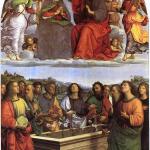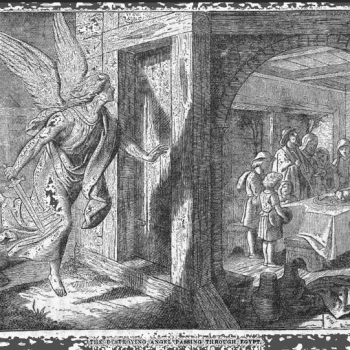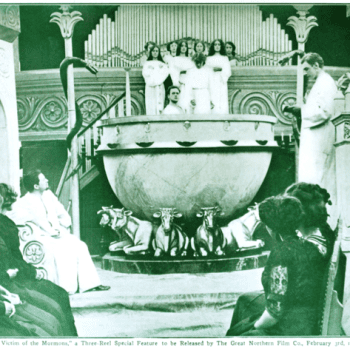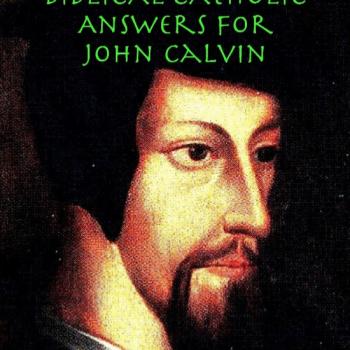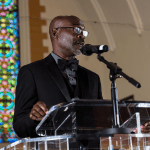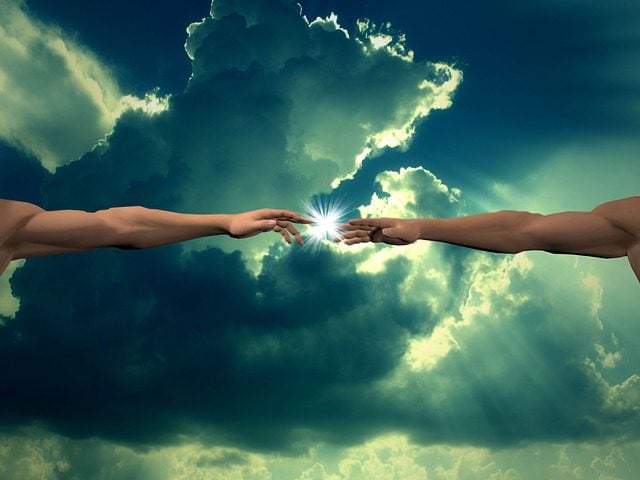
Grimlock (a Norwegian) is a regular (and rather inquisitive and provocative) contributor on my blog. He was responding underneath my paper, “Do Catholics Believe in Predestination? Yes! But . . .” His words will be in blue.
*****
Not finding this very intuitive to grasp, so I’ve got some questions to clarify. I tried to make them yes/no questions. Let me know if any of the questions need to be clarified.
1. Does God know before a person is created whether that person will go to Heaven or Hell?
Yes (knowing everything and being outside of time).
2. Does God create someone intending for that person to go to Heaven or Hell?
He desires that none perish, so He wants everyone to go to heaven, but He knows that because of the free will He chose to allow human beings to have, a portion will reject Him and His grace and choose to spend hell in eternity without Him. C. S. Lewis famously stated that “the doors of hell are locked on the inside.”
It’s in Calvinist Christianity (not Catholicism or even the vast majority of Protestant theologies) that God actually predestines the damned from all eternity to hell. Some say this was determined “logically” even before the fall of man (supralapsarianism); others that it was logically after the fall: taking it into consideration (infralapsarianism). The great majority of Calvinists today are infralapsarians, but I have argued that John Calvin and the initial Calvinists were supralapsarians.
3. [Are] there people in our world that end up in Hell who would go to Hell in every possible world in which they are instantiated?
I have no way of knowing that for sure, but it seems plausible to me that there are such people (rebels to the end and so damned in all possible worlds which are not universalistic [all being saved in the end] ).
4. Are there people in our world that end up in Heaven in any possible world in which they are instantiated?
I don’t know, but again it seems plausible that at least some people inclined to follow God in this world would do so in all worlds, and thus be saved in the end.
4.2 Are there people in our world that would always freely choose to do the right thing in some possible world? (And so no matter how high the bar, they would always end up in Heaven.)
This is a little different; asking if sinlessness is possible. It’s always possible but rarely attained. Such is our deep-seated rebellion against God. Catholics believe that Mary was sinless, and all Christians believe that Adam and Eve were created good and were sinless until they decided to disobey God. Theoretically then, it is quite conceivable and possible to envision another world where the original created people never rebelled and never sinned, and would as a result blissfully live with God for eternity (with hell not even able to be conceived). This would include the category of angels, who also chose unanimously to not rebel (i.e., no Lucifer / Satan figure).
5. From the discussions about Adam and Eve I suspect the answer is yes: can there be such a thing as a philosophical zombie – i.e. a being indistinguishable from the outside to a human, but without a soul?
Yes. If evolution is how God created, then there would be thousands, perhaps millions of such creatures prior to Adam and Eve: in whom God placed a rational soul: making them in His own image.
6. Has it or will it at some point in time happen that God overrules someone’s free will?
He could, but not in the matter of final (“eschatological”) salvation. That is ultimately their own choice (though His grace is always absolutely required for them to choose Him).
6.1 If yes, who bears the moral responsibility for those actions where God overruled someone?
God. He would do so for a benevolent purpose, in His sovereignty and providence.
I don’t expect you to agree with or fully comprehend all or most of these answers, but so it goes with atheists and Christians trying to explain our views to them.
Maybe you will, though. Why don’t you pleasantly surprise me! :-)
I should add, though, that questions of predestination and free will are almost universally considered by Christian thinkers to be among the most difficult in all of theology (up there with the problem of evil).
***
Photo credit: Image by kalhh (12-14-16): an obvious take-off of Michelangelo [Pixabay / CC0 Creative Commons license]
***



